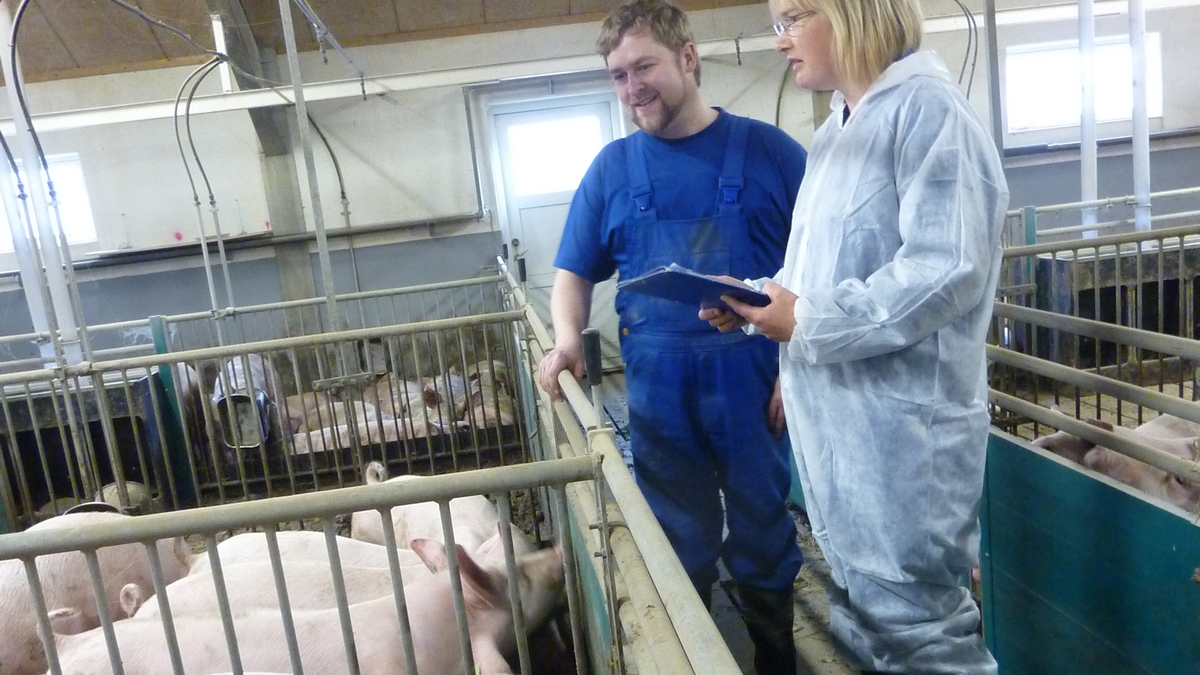Farmers, inspectors and animal welfare: possibilities for change

Subject
Inspectors, animal welfare
In a review, EURCAW-Pigs describes the complexity and challenges of change as well as the potential for inspections to contribute to welfare improvement. Guidelines are provided for suggestions aimed at change, organized around the following three categories: transparency and efficiency of inspection, communication, and step-wise approaches toward compliance.
Role of inspectors
Animal welfare inspectors represent a frontline position between farmers and legislation. In their work, they must operate between the domains of legislation and research on the one hand and on-farm practices on the other. These domains are not always clearly delimited yet there are moments when these domains show little overlap. For example, when a farmer is not aware of a particular law or regulation and sees no reason for it, the domain of legislation can appear quite separate from that of the farm. In addition, the language used in legislation can be very different from everyday speech or concerns on farms. Inspectors, therefore, act as translators between domains. While inspectors are agents of enforcement, research shows that inspectors can motivate change and support animal welfare improvement.
Transparency
Transparency of the inspection process plays an important role in laying a foundation for constructive communication between farmers and nspectors. Some examples:
Farmers are not always aware of the differing value placed on checklist items by inspectors. Farmers may also disagree with the value placed on some items (e.g. paperwork). Rather than keeping these values in the background, it might better facilitate open dialogue and improvement to discuss these weighted values in a transparent manner;
In order to promote transparency and equitable standards in inspections, it is suggested that adequate time be provided for calibration between inspectors in training courses (and between training courses if possible). Calibration can be relevant both in relation to on- farm inspection, inspection during transport and inspection during slaughter.
Communication
Inspectors can learn how to pose questions and listen to the farmer in a way that can open space for dialogue on change. Asking into the farmer’s situation at the farm, financial or social problems and showing empathy towards the farmer’s situation are other ways to promote an openness to guidance from an inspector regarding compliance. Based on this, motivational interviewing (MI) and empathy-based communication are two suggested routes for improving communication between inspectors and farmers.
Step-wise approaches toward compliance
A step-wise approach can support inspection-directed improvement, especially among farms assessed as severely non-compliant: (1) Setting realistic objectives and regularly checking progress, (2) then adjusting the plan according to results until (3) reaching the ultimate goal of full compliance. In addition to controlling farm compliance, a facilitating process could be put in place to encourage farm improvement. The process could involve explaining the benefits of improving the situation, helping farmers to analyse their situation, or stimulating exchanges between farmers to analyse problems and propose solutions.
Suggestions for improvement
Official inspectors and experts from member states are invited to contact EURCAW-Pigs info.pigs@eurcaw.eu with any suggestions, comments or questions to further improve this review.
